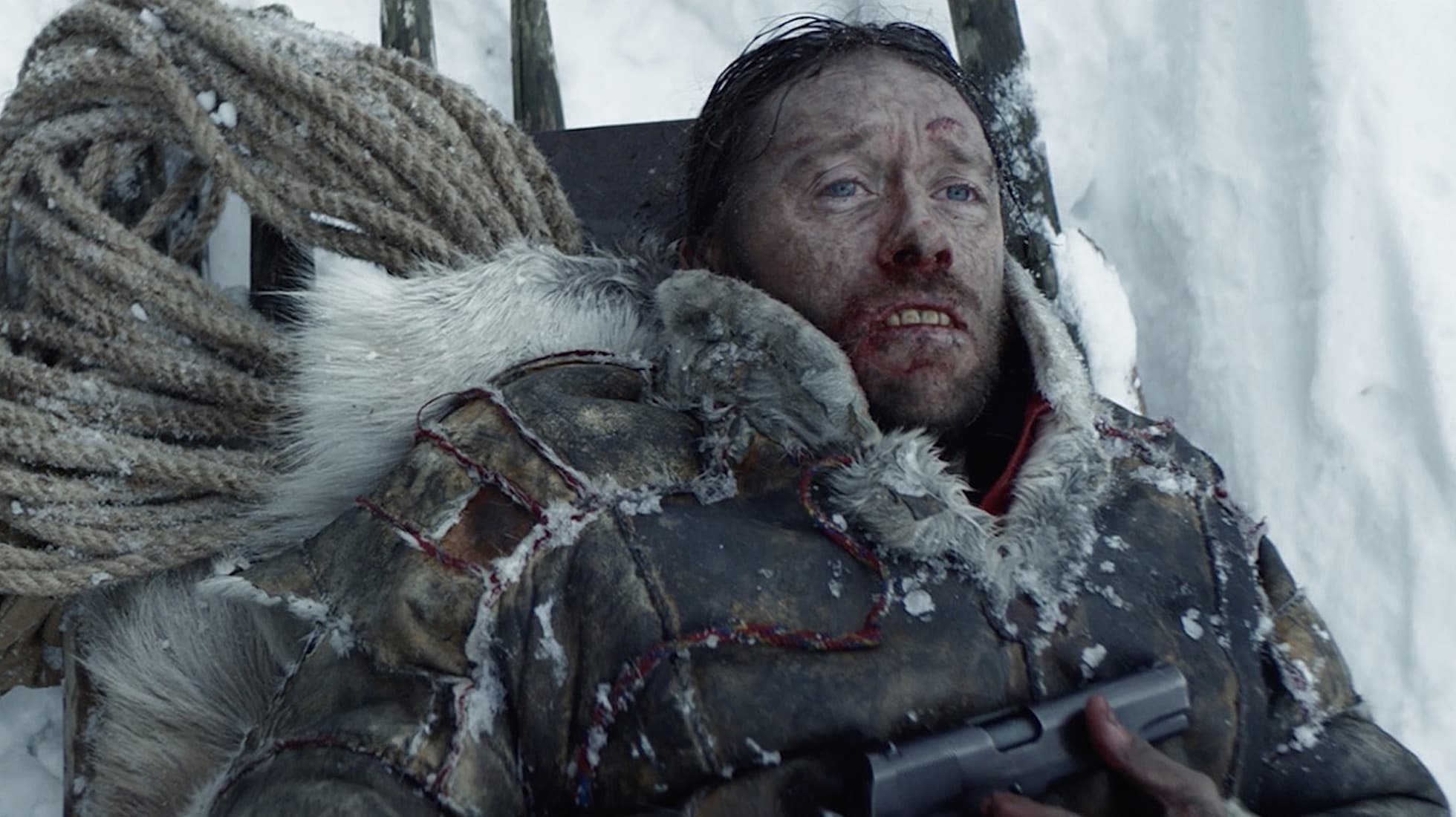One of the biggest surprises of last year's filmgoing was The Captain, a gripping World War II story brought to us by a journeyman director returning to his native Europe after a fitful spell in Hollywood, who was able to lend such a project a scope and heft it might not have otherwise achieved. This week's The 12th Man doesn't quite match it, but it has a similar genesis: it's a very watchable WW2 survival thriller, overseen by one Harald Zwart, the Dutch-born, Norwegian-raised filmmaker previously best known for the Karate Kid remake and the image of Liv Tyler soaping up a car with her cleavage in 2001's One Night at McCool's. With nothing else doing in the wake of 2013's busted franchise non-starter The Mortal Instruments: City of Bones, Zwart has recrossed the Atlantic to film the stirring true tale of Jan Baalsrud, a sometime mapmaker trained in sabotage by the British Army before being sent back to his Norwegian homeland alongside eleven compatriots to mess up the Nazi occupiers' airfields. Those other eleven were captured, and their plans seized, upon what was by all accounts a disastrous landing; Baalsrud slipped away, albeit having lost a shoe at sea and a toe to a Nazi bullet, and was then obliged to hobble, scurry, sled and ski his way across the border to neutral Sweden. An opening title card insists "the most incredible events in this movie are those that actually took place", which makes for a neat variation on the "based on a true story" boilerplate, but also a big claim, more typically found in publicity material than onscreen: here, you sense Zwart the erstwhile Hollywood showman getting his hands back on the reins.
Has he arrived at a product worthy of the hard sell? Yes, broadly. The 12th Man immediately benefits from its vast, screenfilling backdrop: the unforgiving Arctic fringes you wouldn't want to be at large within even without the Nazis on your heels. Yet Zwart and screenwriter Alex Boe keep their narrative line appreciably simple: what passes through these frozen fjords is as much a cat-and-mouse pursuit as the business of The Fugitive or Heat (and suggests one alternative title: Cold), with a hero crawling his way towards safety at odds that get no shorter after he's swallowed up by a mid-film avalanche. They haven't done much with Baalsrud as a character - the few flickers we see of him at rest sketch a doughty, reflective, conscientious soul - but he has great value as a symbol of fragile hope, and the increasingly cadaverous Thomas Gullestad roots his performance in an idea of endurance, that of a man reduced to the essentials, resolving just to pick himself up, keep moving, and thereby stay alive. (Baalsrud's was a true triumph of the will.) His progress provides the opportunity for the filmmakers to pay tribute to Baalsrud's fellow Norwegians, who provided this crouched, dishevelled figure with food, shelter and medical care at various stages along his route; one possible (sporting) reading of the title is that, in the absence of the squad Baalsrud trained with, it was the Norwegian people who became the extra man, at some points literally carrying him on their shoulders towards his finish line - no matter that this placed them at great risk of execution by the country's occupiers.
Speaking of which, there's a genuine turn-up in the Tommy Lee Jones role: the previously elfin and ethereal Irishman Jonathan Rhys Meyers, who's filled out and mastered a command of military German since last we saw him, and in so doing made his local Gestapo head Kurt Stage far more than a standard-issue panto villain. This is the kind of solid character work Rhys Meyers has never previously had the material to get stuck into: there's something of the younger Donald Sutherland here, not least an ability to suggest fathomless depths of disgust (or, just perhaps, self-loathing) via a single, glowering look. Some sequences remain more effective than others. You can feel the film getting bogged down in a log cabin - where Baalsrud falls subject to a mental breakdown, and a surfeit of crass sound and editing choices that represent the worst of what Zwart took away from Hollywood - but it feels significant that this passage should conclude with our hero doing to another of his poor toes what James Franco had to do to his forearm in 127 Hours; Gullestad sells us on both the necessity and agony of this, and it frees up the film for its properly incredible climax, which justifies every drop of the confidence Zwart had written into that opening title card. (Put it this way: you never knew the place reindeer occupied in resisting the Nazi occupation.) It's a yarn that doesn't get snagged or tangled up, that knows when to cut and run, and that movement is as vital an asset in resistance as any other: it yanks us along, as surely as it carried Jan Baalsrud into the local history books.
The 12th Man opens in selected cinemas today, ahead of its DVD release on Monday.

No comments:
Post a Comment